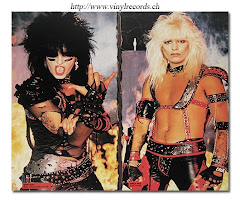Sunday, September 27, 2009
Boys in the Hood Post
I feel as though there are two masculinities displayed in the movie that directly contrast each other, especially in that they are both in the same neighborhood. The positive type of masculinity was best represented by Tre's dad, Furious Styles, who was the exact opposite of the boys living in his neighborhood. Mr. Styles had a successful career, was financially stable, loved his son very much, promoted abstinence and tried his best to instill the best morals he could in his son. Tre's dad was the epitome of a positive male in that he was able to grow out of the idea of the typical "bad boy" and move on to realize that there are bigger and better things in life other than causing fights and experiencing the death of your friends every day. Furious tries to instill this same mentality in his son even though he knows his son is involved with people like Doughboy. Another person I saw who promoted positive masculinity would be Ricky, even though he is not as positive as Furious. Ricky and his girlfriend had a teen pregnancy and even though it could have been very easy for him to get out of it, he decided to stay with his girlfriend and help her take care of the baby. He is trying to be responsible and get away from the trouble that surrounds him in his neighborhood. He even takes a standardized test so that he can go to college and gain an education to support his family. This shows how he wants to move on from the fighting and experience better things. Unfortunately, though, his death is a result of the trouble he got into but we can see he was trying to become better because moments before his death, he was telling his friend that he wanted to join the army. Contrasting to Ricky and Mr. Styles, we see Doughboy, Ricky's brother, who is the epitome of trouble in the neighborhood. He is always ready to get into a fight and has quite a temper. Doughboy is usually the one who has to watch his brother's back and in the end, after his brother is shot in a drive-by, it is Doughboy who goes and shoots the men who killed his brother. This situation obviously caught up with him when he also died weeks after his brother. Doughboy never showed a want to get out of this life and move on and in this, he can be considered to give off a more dangerous vibe than the other boys in the movie.
Race plays a big role in this movie, even though most of the movie is about African American people, because the boys like Tre and Doughboy feel the need to show off and flaunt their masculinities more because they are African American. Since they know people see them as inferior to white people, they feel the only way in which they can make a statement and fend for their race if by causing fights and showing off their manly abilities.
Women, I feel, played a more passive role in this movie but still made an effect to the overall plot. Brandi, Tre's girlfriend, and Mrs. Style's were both displayed as women who depended on their men yet still had strong values. For example, Brandi chose to remain abstinent because of her religion and Tre had no choice but to accept that. She also wanted to go to college so that she could get a good education and get away from the dangers of her neighborhood. Even though she is relatively dependent on Tre, this want to go to college shows that she too is also independent. This is similar to the African-American girl in Lopez's Homegrown article who talks about how her parents told her "You have to work twice as hard because you are Black and you have it even worse because you are a woman." In this, the girl wanted to be more independent so she didn't have to depend on anyone and could rather support herself one day. Brandi shows this same encouragement by realizing that college would be a challenge but she knew she had to go, especially being an African-American woman.
Subscribe to:
Post Comments (Atom)


No comments:
Post a Comment
Note: Only a member of this blog may post a comment.